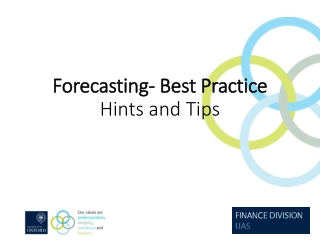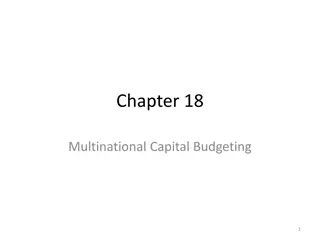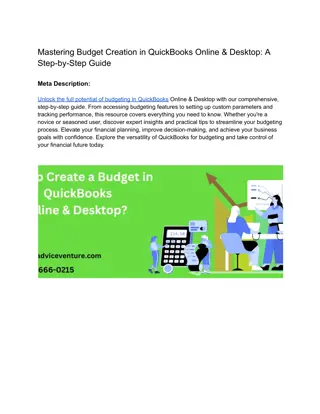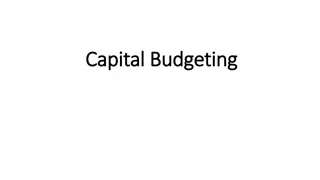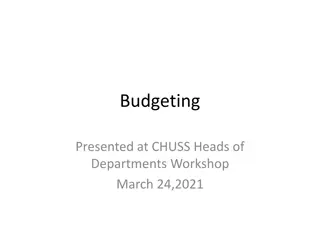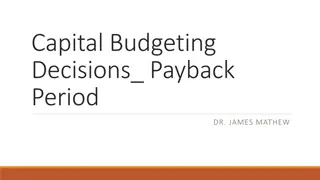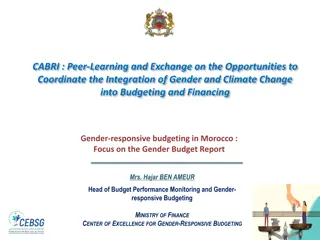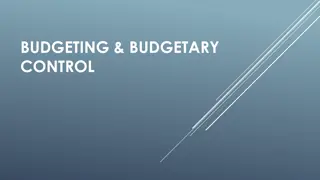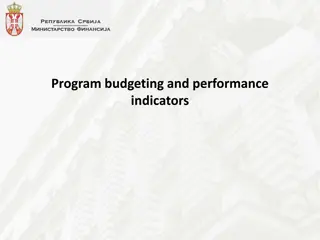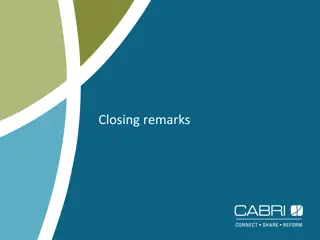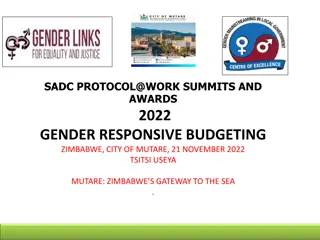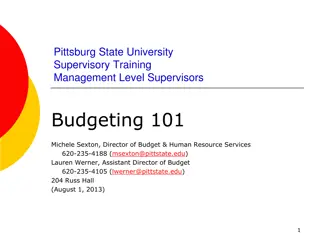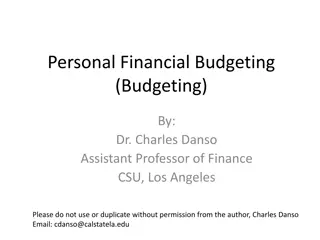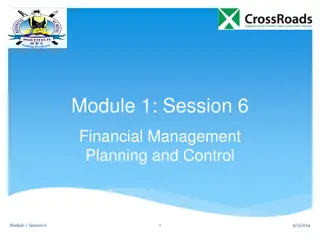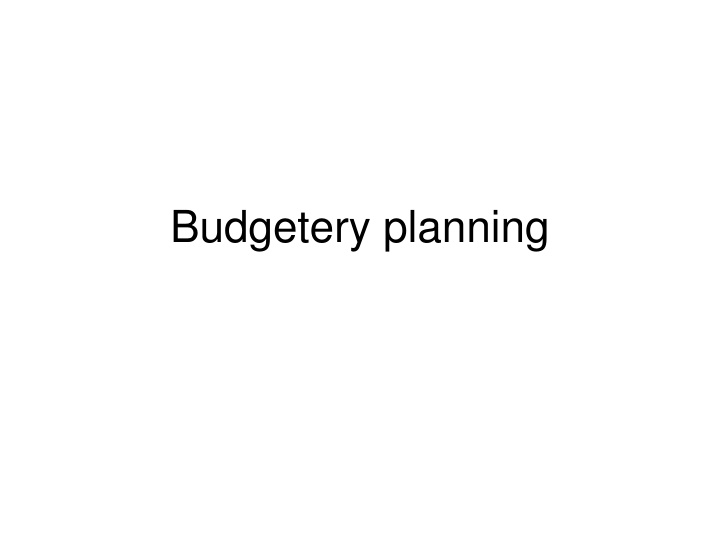
Comprehensive Guide to Budgeting and Planning for Organizational Success
Learn all about budgeting and planning in this comprehensive guide, covering topics such as types of budgets, budget cycles, purposes of budgeting, and the interrelated impacts on operational income, financial position, and cash flow. Discover how budgeting can be used as a tool for management and the essential components of comprehensive budgeting.
Download Presentation

Please find below an Image/Link to download the presentation.
The content on the website is provided AS IS for your information and personal use only. It may not be sold, licensed, or shared on other websites without obtaining consent from the author. If you encounter any issues during the download, it is possible that the publisher has removed the file from their server.
You are allowed to download the files provided on this website for personal or commercial use, subject to the condition that they are used lawfully. All files are the property of their respective owners.
The content on the website is provided AS IS for your information and personal use only. It may not be sold, licensed, or shared on other websites without obtaining consent from the author.
E N D
Presentation Transcript
Budgets What is a budget? a plan expressed in monetary terms covering a future time period based on a defined level of activity
Budgeting can be used as a planning tool by Management .Therefore primary phases of the budgeting are Planning Control
Why comprehensive budgeting Identify the organizational interrelated impact on the operational income, financial position and The cash flow.
Types of budget Fixed Defined period, usually 12 months by month, often beyond 12 months Rolling continuously updated, additional months added to the end of the period so that at any time there is always a 12-month forward-looking budget, often beyond 12 months Forecast Revised mid-year , without changing original budget Forecast sometimes used interchangeably with budget
Budgeting and strategy Strategic planning precedes budgeting and provides the framework within which the annual budget is developed. A budget is, in a sense, a one-year slice of the organization s strategic plan .
Components of the comprehensive budgeting
Purposes of budgeting Implement strategy by allocating resources in line with strategic goals Co-ordinate activities and assist in communication among different parts of an organisation Motivate managers to achieve targets Provide a means to control activities Evaluate and business unit performance
Budget cycle 1. 2. Identify business objectives Forecast future conditions (1) general economic conditions, (2) industry trends, (3) market research studies, (4) anticipated advertising and promotion, (5) previous market share, (6) changes in prices, and (7) technological developments Develop detailed sales budgets by market segments, major customers and product groups Prepare production budgets for the goods or services needed to satisfy the sales forecast and maintain agreed levels of inventory. 3. 4.
Budget cycle (cont.) 5. 6. 7. Prepare expense budgets by cost centre Prepare capital expenditure budgets Prepare cash forecasts and identify financing requirements Prepare master budget (Income Statement, Balance Sheet and Cash Forecast) Obtain Board approval of profitability and financing targets 8. 9.
The Master Budget The Master Budget is a set of interrelated budgets that constitutes a plan of action for a specified time period. 13
Formats of the operational and financial budgeting
SELLING, GENARAL AND ADMINISTRATION BUDGET

